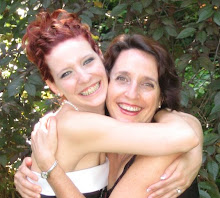It's similar to the relief I felt, years ago, when I was no longer food insecure myself. I had gotten a good job. My kids could finally eat anything they wanted. There was always fruit in the house, and fresh meat and vegetables. I cooked roasts and chickens and hams. I've always loved to cook.
I was, and am, by all counts, a very frugal person. However, not having enough food to feed my family had left a permanent impression. So, when it came to food, I stopped checking prices. I never thought twice about putting something in my cart that we wanted. I didn't skimp on food. It wasn't that I bought caviar. If the store brand was just as good, I happily bought it. But I bought name-brand mayonnaise. It tasted better. I bought snacks like chips and ice cream. I was careful, not extravagant, but I didn't check the price. I'd find out at the check-out what I was spending. Next time I'd be more careful if it was too much. But I was set in my mind to not add up or check prices, while pushing my happy, bountiful cart through the aisles.
I had been traumatized, I think, by having been so broke for so long (a few years). Not having enough food is a frightening experience. Eating is as basic an instinct as personal safety from danger. Imagine if someone were chasing you with a gun in their hand. Your heart would race. Your adrenaline would pump. You'd be scared—and you'd do anything to get to a safe place, free from your attacker.
That's exactly what it's like to have no money. To have no food. To lose your home. A panic sets in. And if you're Type A, like me, you wear a strong face and you set at getting the job, getting shelter, getting food... with a determination and resolution that is unsurpassed by any athlete running a marathon in the Olympics. Every resource exploited, every opportunity created that you can create for yourself, every neuron in your brain firing on this puzzle with no clear clue to how to solve it.
When I was food insecure and receiving WIC and soup kitchen donations, and losing my home in the early 90's, I sent my two middle children to live with my father in Florida. We would only have four children to feed, and bring four children to look at housing for rent, because no one would rent to us. No one. Six children were too many. I thought four might seem more reasonable. At that point I had a job. I could afford the rentals we looked at. But everyone in our county turned us away.
My daughters wrote sad "miss you" postcards from Florida. We weren't any closer to getting a home or financial security. I had $3,000 in uninsured emergency room visits for severe abdominal pain, undiagnosed. I began to lose bladder control. Another doctor visit. The diagnosis? Stress.
Trauma aside, the physical rigors of not enough money are grueling for your body. You work long, hard hours, then come home to care for your family, help with homework, and stretch the dollars. Deal with bill collectors and lawyers. You can't sleep. You're exhausted and this is the moment in your life when your brilliant mind and resourcefulness are needed—alert and strong—more than ever. The poor don't need less food, less nutrition. They need more!
When it was all over... When we were in our new home, in a different county where folks accepted large families in rentals... When, about a year later, a new, higher-paying job finally came along... That's when I stopped looking at prices in the grocery store. It was the most liberating, exhilarating, euphoric experience. I'd come home with my bounty and thank God with a gratitude that's hard to describe. A deep, resounding song of gratefulness in my heart.
And I began to give again, as I had in the past. And give regularly. I gave to non-profits that I vetted and trusted, and to homeless shelters and the homeless. That felt so wonderful—a richness far beyond possessions—comes from the joy of giving, especially when you know the preciousness of every penny to those who need it.
So here I am, after the SNAP Challenge, which was completely voluntary. But it's different now. There was no trauma. It was simply a visit. I didn't have to live there. And now I have a different response. I'm happy to go to the store and not count the pennies, but I'm careful about what I buy. I don't want to buy anything we won't eat. I don't want to waste a morsel. I want to be ever-mindful and respectful of the value of the food I buy. I will eat more of the meat on my chickens. I'll eat more of the core of my apples. I'll drink black coffee—something I never would have considered before milk and sugar added 35¢ to my coffee in the SNAP Challenge.
And when I put extras on my food—toppings like cranberries on my salad and sour cream on my taco—I'll be grateful, deeply grateful, that I can afford such luxuries. And I'll keep giving, now more than ever, to those who can't.




No comments:
Post a Comment